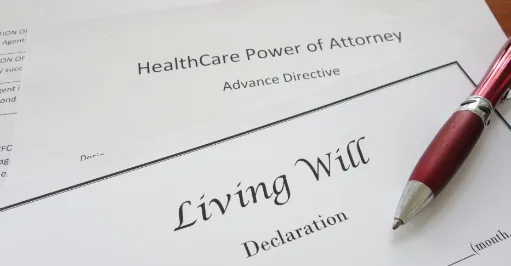Planning for death-related events isn’t as fun as planning a weekend getaway. Therefore, you’d be forgiven for procrastinating. However, that doesn’t mean you can put off naming an executor forever, says a recent article from AARP, “7 Things to Know About Appointing an Executor.”
Your executor needs to possess the stamina, patience, and persistence to complete the tasks of this role. Having your estate administered may become difficult or impossible if they don’t. Serving as an executor can be more complex than people think. Problems begin when someone names a family member just because they are family—which is not the best reason.
It’s best to name someone rather than no one, advises the article. You can always change the executor if they decide they don’t want the responsibility or die before you. If you don’t name anyone, the court will decide for you; It may not be someone you know or the last person you want to handle your estate.
Things can get even more complicated if you don’t leave clear instructions, including where to find your important documents, the keys to your home and car, and usernames and passwords to various digital assets. Instead of making everything harder for the ones you love, it’s best to make it easier.
There are seven main tasks for the executor to complete. The first is planning the funeral. You can make that easier by expressing your wishes to your executor and leaving the information in documents. Don’t add it to your will—the executor may not see the will until long after you’ve been buried or cremated.
The executor must obtain a death certificate, find the will, and retain an estate planning attorney. The death certificate is issued by your county of residence and is signed by the physician who verified your death. If you’ve had a valid will prepared, your property will be distributed according to the terms of the choice. Assets in trusts or accounts with beneficiary designations will go directly to your heirs. Everyone should review their beneficiary designations regularly and update them as needed. The beneficiary designations surpass any wishes in the will.
Notify the probate court. Your executor or attorney will need to petition the probate court in the area where you live. They’ll complete a form to obtain a Letter of Administration or Letters Testamentary. These are used to prove that they are the court-approved executor.
Inform all interested parties. Deaths must be reported to employers, Social Security, friends, family members, and beneficiaries under the will. Anyone who might have an “interest” in the estate needs to be notified. In some jurisdictions, this requires publishing a death notice in the local paper several times shortly after the person has passed. Banks and other financial institutions also need to be notified.
Pay all debts and file taxes. If applicable, the executor must settle all obligations with creditors and file income, inheritance, or estate taxes.
Create an inventory of assets and plan for distribution. This includes probate and non-probate assets. This includes assets that are jointly owned or held in trust. Next, the executor determines what is sold, kept, donated, or discarded.
Distribute assets among beneficiaries. This occurs only after estate liabilities, including taxes and paying creditors, are settled.
Complete the final accounting and all required forms. Your executor must dissolve existing accounts and ensure the court has everything to settle your estate.
Your will helps your loved ones navigate the process of settling your estate. Include clear instructions in a letter of intent so they know what accounts they must deal with. Above all, ensure that the person you name to serve as executor can handle the tasks and the family dynamics accompanying grief.
See also our blog on how to choose an executor and when to replace them.
The importance of selecting the right executor in estate planning cannot be overstated. Your chosen executor will be entrusted with carrying out your final wishes and ensuring the smooth transition of your assets to your loved ones. You can make a well-informed choice by considering their qualifications and responsibilities and aligning their values with your own. With the right executor, you can gain peace of mind knowing your legacy is in capable hands. Book a call with us today for sound advice and a complimentary review or discussion of your estate plan.






